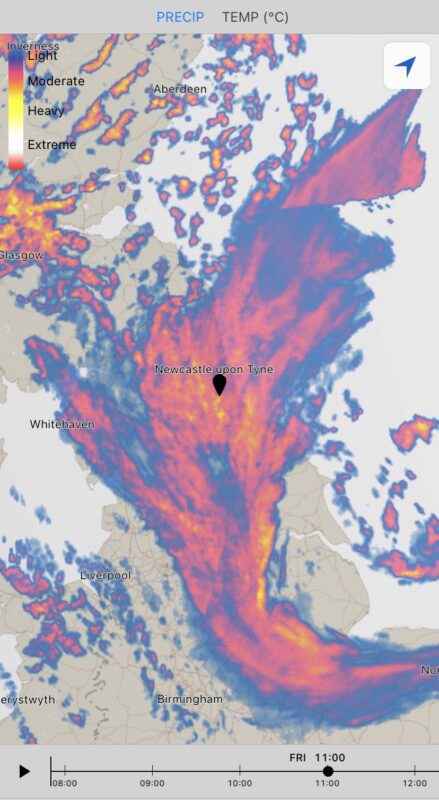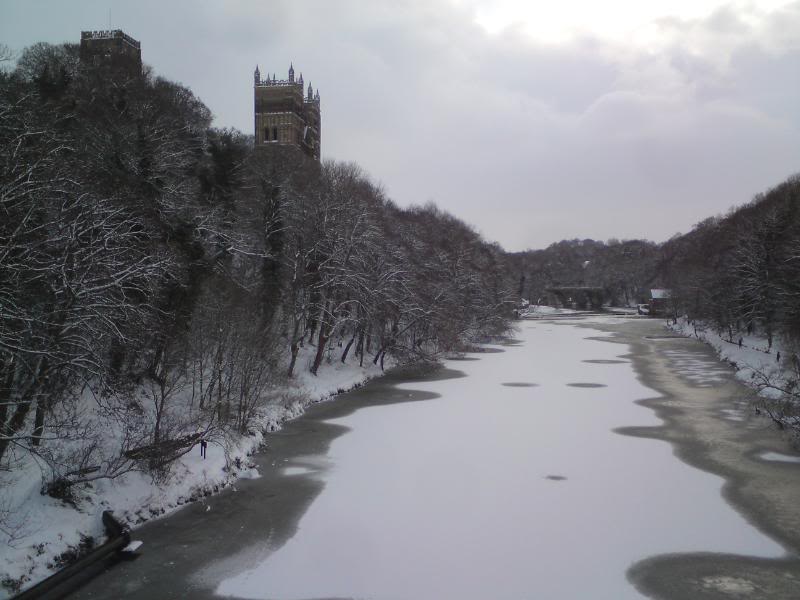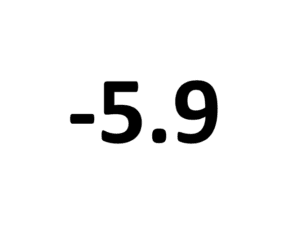Sponsor Any Post or Page on the Site. Just Contact Me to Discuss.
When December 2010 came along and hit us square between the eyes, it was a complete shock to the system. There had been no below freezing December in the UK (average below 0.0 degC) since 1890. That’s 120 years. These are temperatures from the CET series (Central England Temperature). The last time the temperature averaged below zero was in February 1986. Records in the CET series go back as far as 1659.
Historic cold Decembers
So, let’s look at those sub-zero December years. The first is December 1676 (mean temp -0.5 degC). Back then, the temperatures were only recorded to the nearest half degree and there aren’t any daily temperatures available to me, so I can’t really embellish that too much other than say, imagine a below-freezing month when there were no heated houses. Brutal stuff. There must have been great suffering.
Next in the list, after a big gap of 112 years, is December 1788 (-0.3). This time, daily temperatures are also available to look at. December 1788 was generally cold throughout, but especially severe from the 12th to 23rd. There was a short milder period lasting only Christmas Eve and Christmas Day, before severely cold conditions returned between Christmas and New Year.
There was only a short few years before the next cold December, in December 1796 (-0.3). This month contained the coldest ever Christmas Day (-10.8 degC). Again, there were two really cold spells : the start of the month until 11th December, and then around the Christmas period (20th-27th). The weather warmed up again towards the New Year, and the rest of winter was unremarkable.
Moving into the ‘Dickensian’ period, when snowfall became popularised on Christmas cards, after a gap of 78 years, the next sub-zero December was December 1874. This month averaged just below freezing at -0.2 degC.
The first 13 days were on the chilly side at an average of 2.1 degC, before the really bitter weather set in after that until the end of the year. The period 14th-31st December averaged -2.0 degC, which is incredible for an 18 day period. January 1875 was very mild.
Another ‘Dickensian’ winter produced the next freezing cold December, just four years later in December 1878 (-0.3). This month, and the following January produced the third example of consecutive freezing months in the record (after Jan and Feb 1684, Jan and Feb 1740, before it happened again for a fourth time in the winter of 1962-63).
In December 1878, the severe spell was slap bang in the middle of the month. The period 9th-26th December averaged -2.8 degC. By New Years Eve, it was up to a balmy 10 degC before the January deep-freeze regained it’s grip into the New Year. January 1879 averaged -0.7 degC
And so to December 1890 (-0.8 degC). The last sub-zero December before 2010. The month was severe from the 9th until the year’s end. This period averaged -1.9 degC. There had also been a very cold end to November 1890. The cold continued into January 1891, with the first 19 days of the year averaging -1.1 degC. The entire period 9th December 1890 to 19th January 1891 averaged -1.5 degC.
The coldest day was 22nd December at -6.5 degC. December 1890 was actually the coldest December on record, closely followed by the new cold in December 2010 (-0.7 degC).
Coldest December Days (1659 to date)
25th December 1796 -10.8 degC
12th December 1981 -8.5 degC
27th December 1798 -8.4 degC
28th December 1798 -8.2 degC
17th December 1859 -7.7 degC
31st December 1783 -7.1 degC
18th December 1859 -7.1 degC
20th December 2010 -7.0 degC
24th December 1870 -6.9 degC
19th December 2010 -6.8 degC
As can be seen, most of the extreme temperatures fell in the freezing months, the exceptions were in December 1981 (a very cold month with a colossal amount of snow that just missed out on sub-zero status at +0.3 degC),
December 1798 (a short, exceptionally cold spell from Christmas Eve to the 29th), December 1859 (another short, but very wintry spell between 13th and 19th), December 1783 (very cold immediately after Christmas) and December 1870 (very cold in the last third of the month).
December 2010 was arguably the most remarkable of them all, because it occurred during the current warming trend, whilst the others were in the more traditionally accepted Maunder Minimum and Dickensian winters which were much colder on average anyway.
When will the next one be? It may not be in our lifetimes, or it may be in a couple of years, there’s really no way of knowing.
However, Exacta Weather and The Daily Express seem to think it will occur every year! 😏

Latest Christmas Weather Posts
- December 2020 Weather in Durham – Wet, with a White Christmas
 Sponsor Any Post or Page on the Site. Just Contact Me to Discuss. December 2020 in Durham started wet and cold. The 4th December very wet, with snow on high …
Sponsor Any Post or Page on the Site. Just Contact Me to Discuss. December 2020 in Durham started wet and cold. The 4th December very wet, with snow on high … - Freezing Decembers – They really are very rare in the UK
 Sponsor Any Post or Page on the Site. Just Contact Me to Discuss. When December 2010 came along and hit us square between the eyes, it was a complete shock …
Sponsor Any Post or Page on the Site. Just Contact Me to Discuss. When December 2010 came along and hit us square between the eyes, it was a complete shock … - Coldest Christmas Days – 2010 is up there!
 Sponsor Any Post or Page on the Site. Just Contact Me to Discuss. This list has been compiled from CET records after we experienced the coldest December for more than …
Sponsor Any Post or Page on the Site. Just Contact Me to Discuss. This list has been compiled from CET records after we experienced the coldest December for more than …